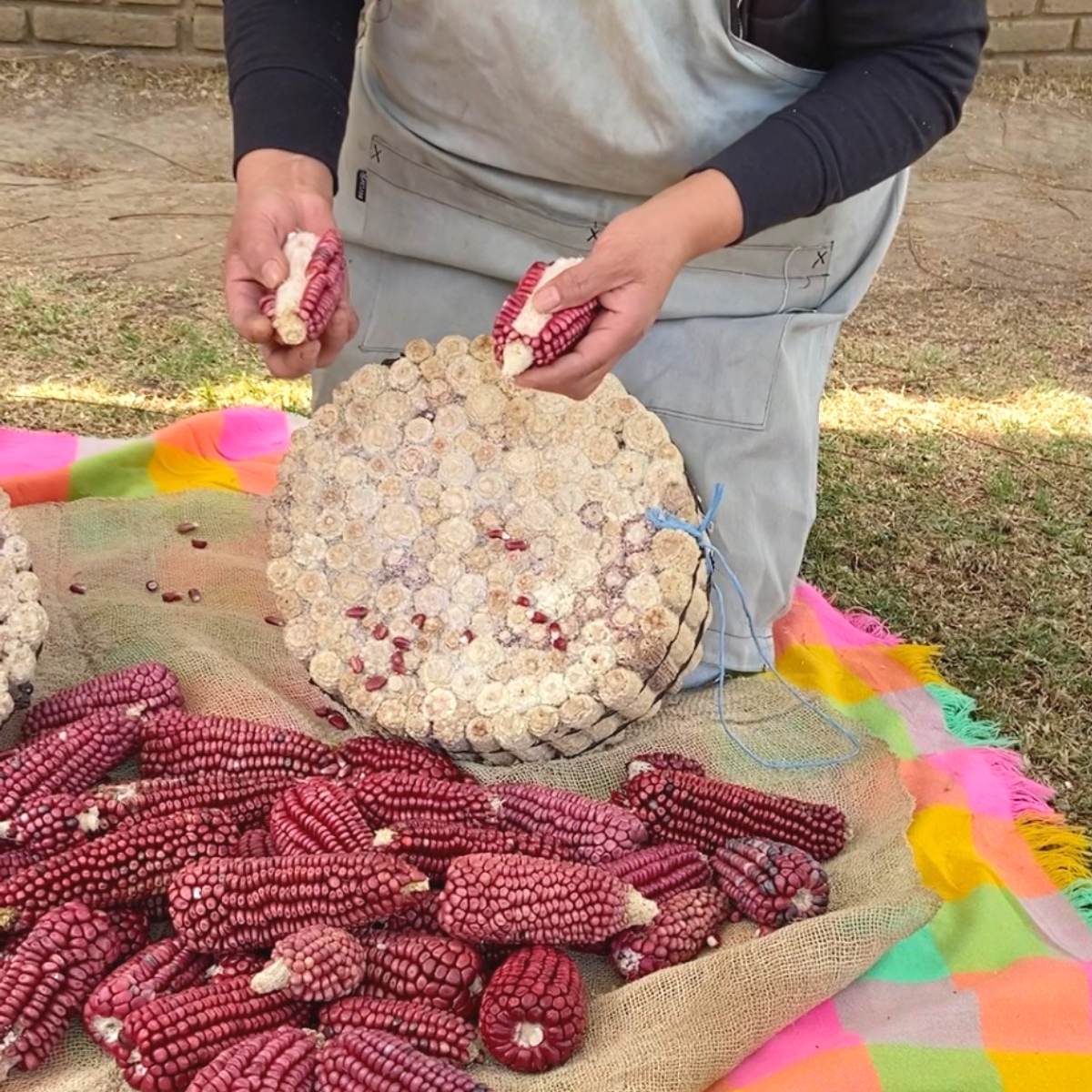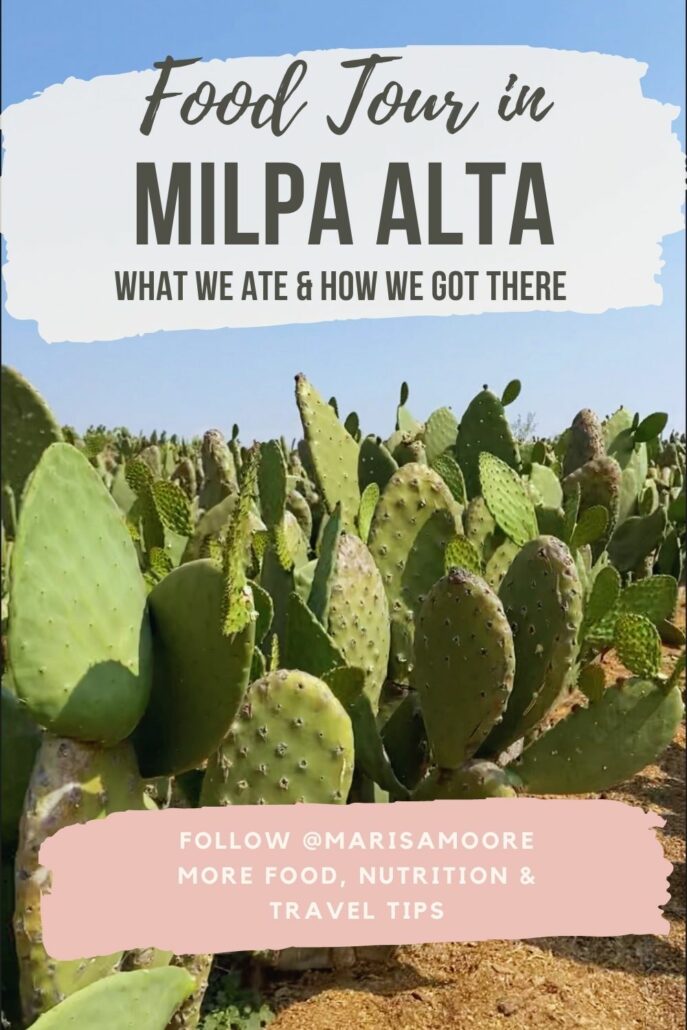Milpa Alta is a rural area of Mexico City filled with cactus fields and lots of homemade mole! Here I’m sharing my experience as a dietitian learning how to harvest and cook nopales, making fresh corn tortillas and tasting many different types of mole.
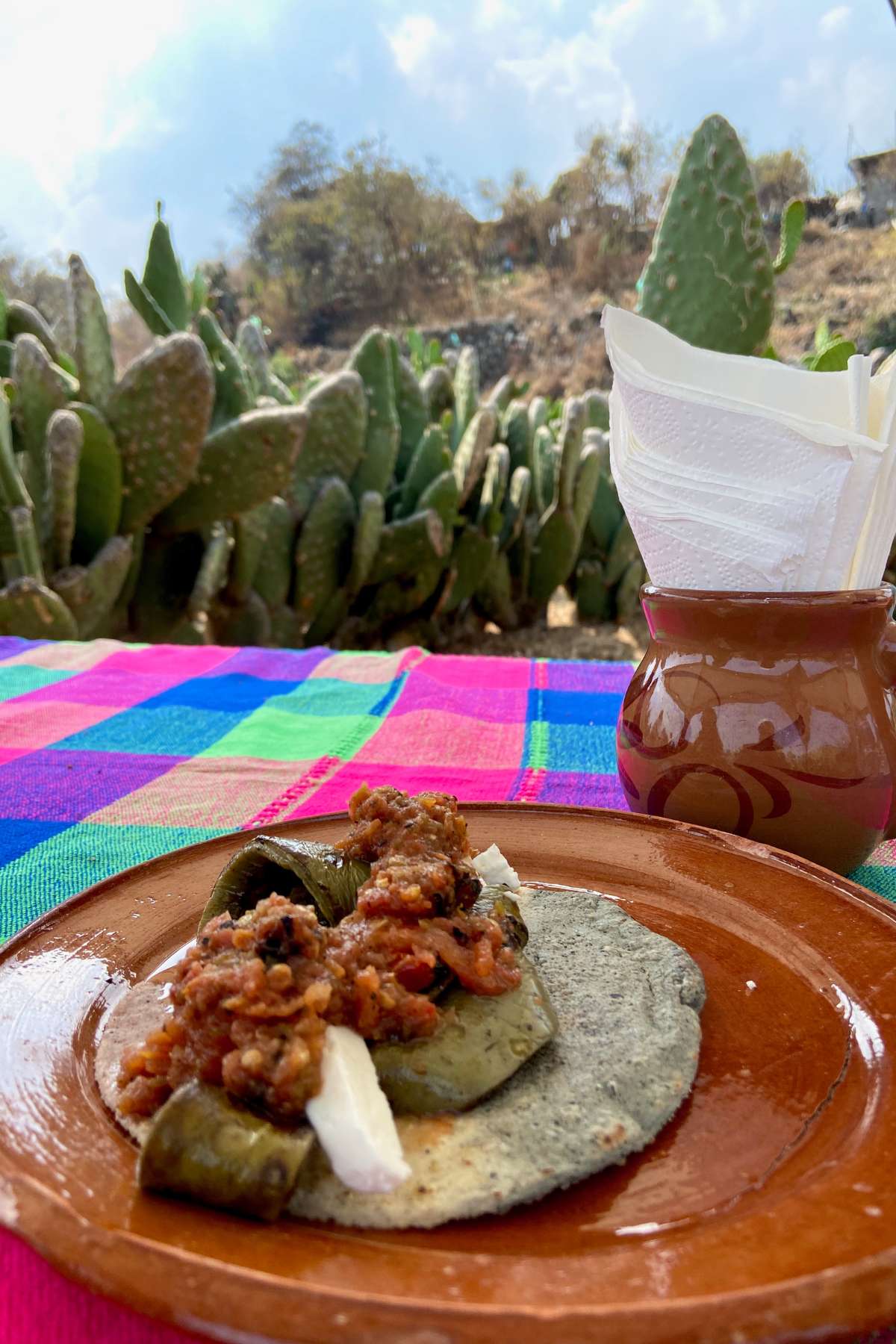
Milpa Alta is the southernmost borough of Mexico City. It’s rural and moves at a much slower pace. This special place is fertile ground for learning about the three king crops of the country and enjoying amazingly fresh traditional food. I took the Ruta de La Milpa experience created and led by chef Jorge Córcega.
While visiting, we had fresh nopales tacos, cafe de olla, sopes with fresh salsa, black bean tamales and mole and sipped refreshing bottomless agua de hibiscus (or Jamaica) throughout the afternoon. If you are not familiar with any of those, I’ll explain.
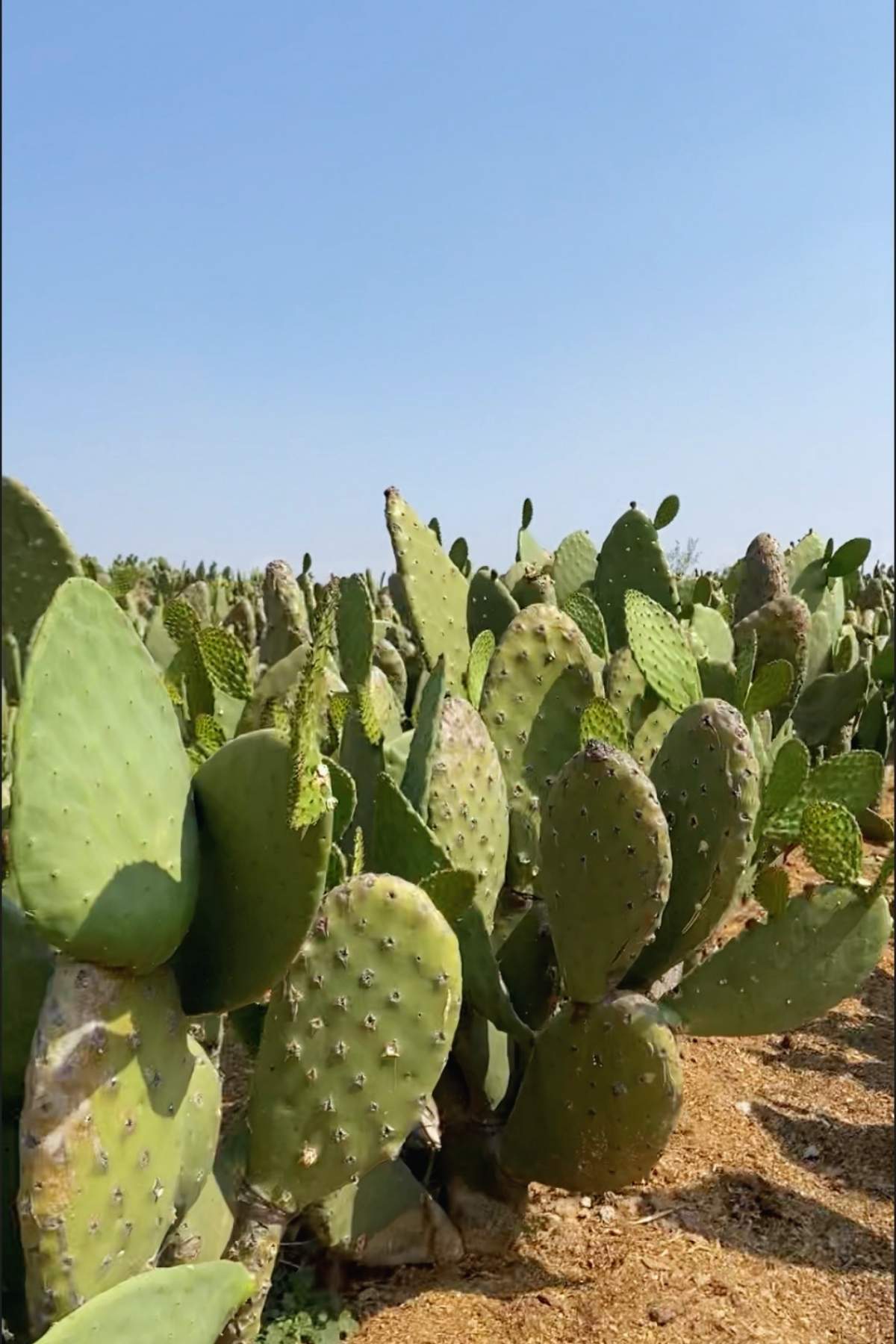
La ruta de la Milpa was fun and educational. And the food was simple and delicious. As a dietitian I was especially curious about the history and culture – and the day answered many of my questions and ignited new ones in the process.
How far is Milpa Alta from the city center?
We took a 60+ minute bus ride from the Roma Norte/Juarez area to reach Milpa Alta on a Wednesday morning. The notorious Mexico City traffic will dictate how long it might take you.
But you will need to take a vehicle. It’s a rural area that is not easily accessed via public transportation. Plus, you’ll want a car to truly experience the beauty of the area, shop the local stores and dine in the family run restaurants at your own pace.
So here’s a snippet of our day en Milpa Alta:
We started the day in a field of nopal with a warm mug of cafe de olla.
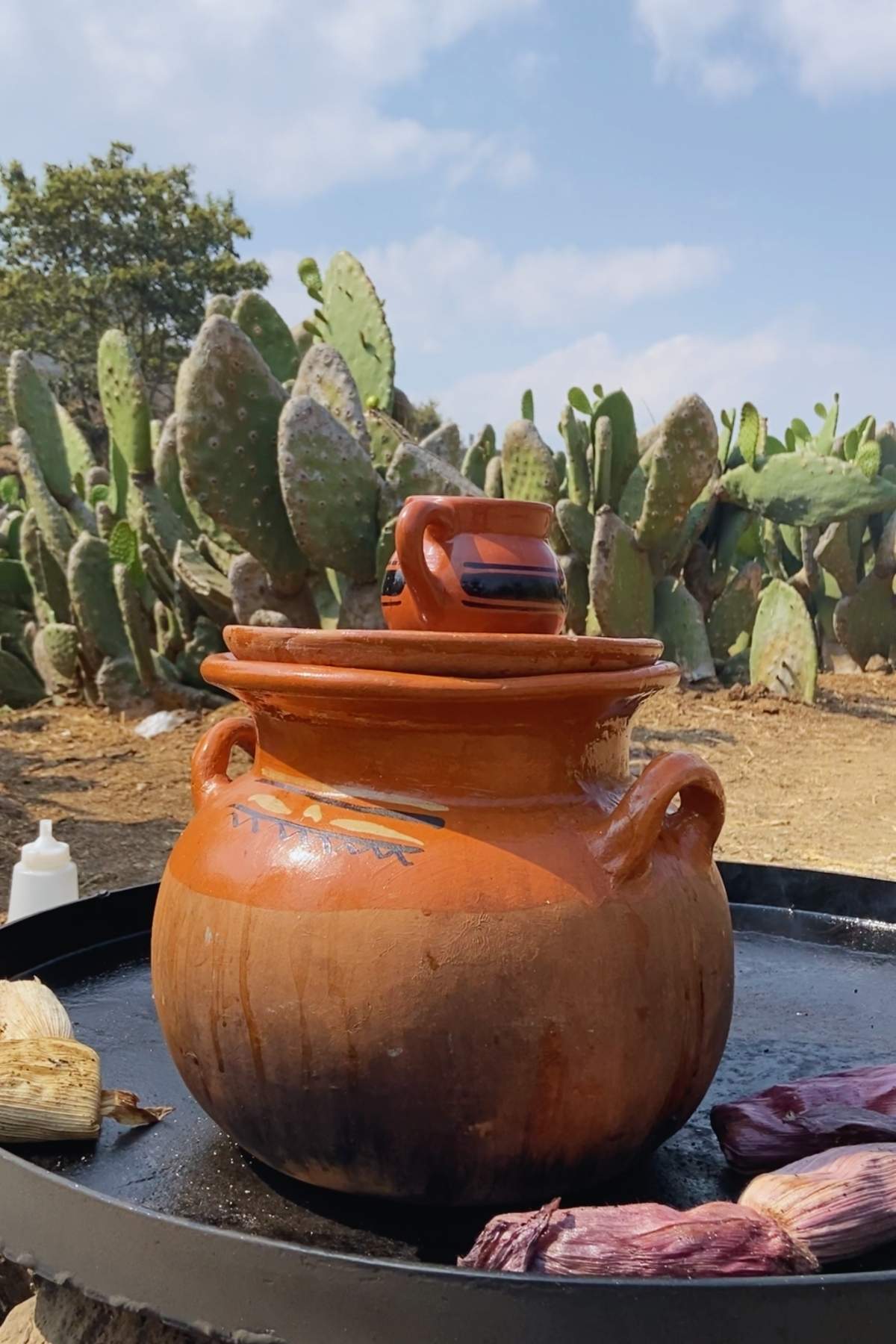
What is cafe de olla?
Cafe de Olla translates to “coffee from a pot” in Spanish.
This traditional Mexican coffee is made in an earthen clay pot (pictured above). The coffee is slightly sweetened with piloncillo (akin to a rich dark brown sugar or molasses) and spiced with cinnamon. From what I understand the pot is an essential “ingredient” as it provides depth of flavor. You might also find recipes today that include other spices including clove, star anise or orange peel.
The cup of cafe de olla I sipped on the tour was slightly sweet, rich and balanced. Definitely get a cup when you go on the tour – it’s the perfect start to the day especially when it’s a bit chilly in the nopal field.
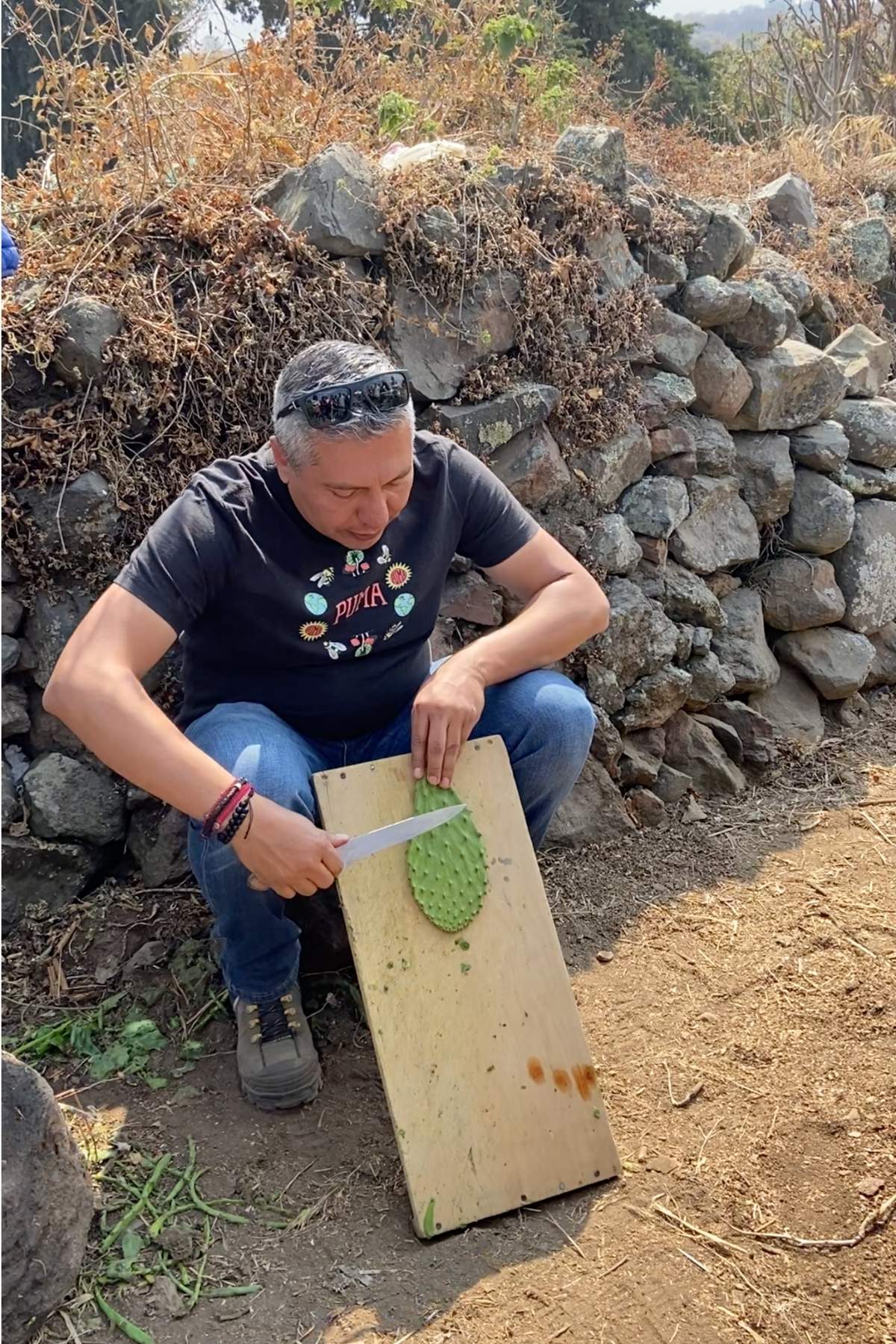
Harvesting, cleaning, cooking nopales
Nopales can be eaten fresh (raw) or cooked. Use them in fresh salads, griddled for tacos or add to soup or stew and more.
Nopales are perishable. And once fresh nopales are are picked and the thorns removed, they should be eaten within about 48 hours. Before prepping them, you can store them in the refrigerator for longer but it’s a good idea to wait until you’re ready to cook or eat them to prep (remove the spiny needles).
Chef Cócega showed us how to remove the thorns with a sharp knife (above). He offered but I left the prep to the chef. Mostly because I already had a thorn in my thumb from the harvest and didn’t want more.
When preparing them at home, it’s a good idea to use a stable cutting board and a thick, clean kitchen towel to hold the small end of the cactus leaf while you use a sharp knife to scrape down to remove the prickly thorns.
Once that part is done, you are ready to enjoy them in your favorite dishes.
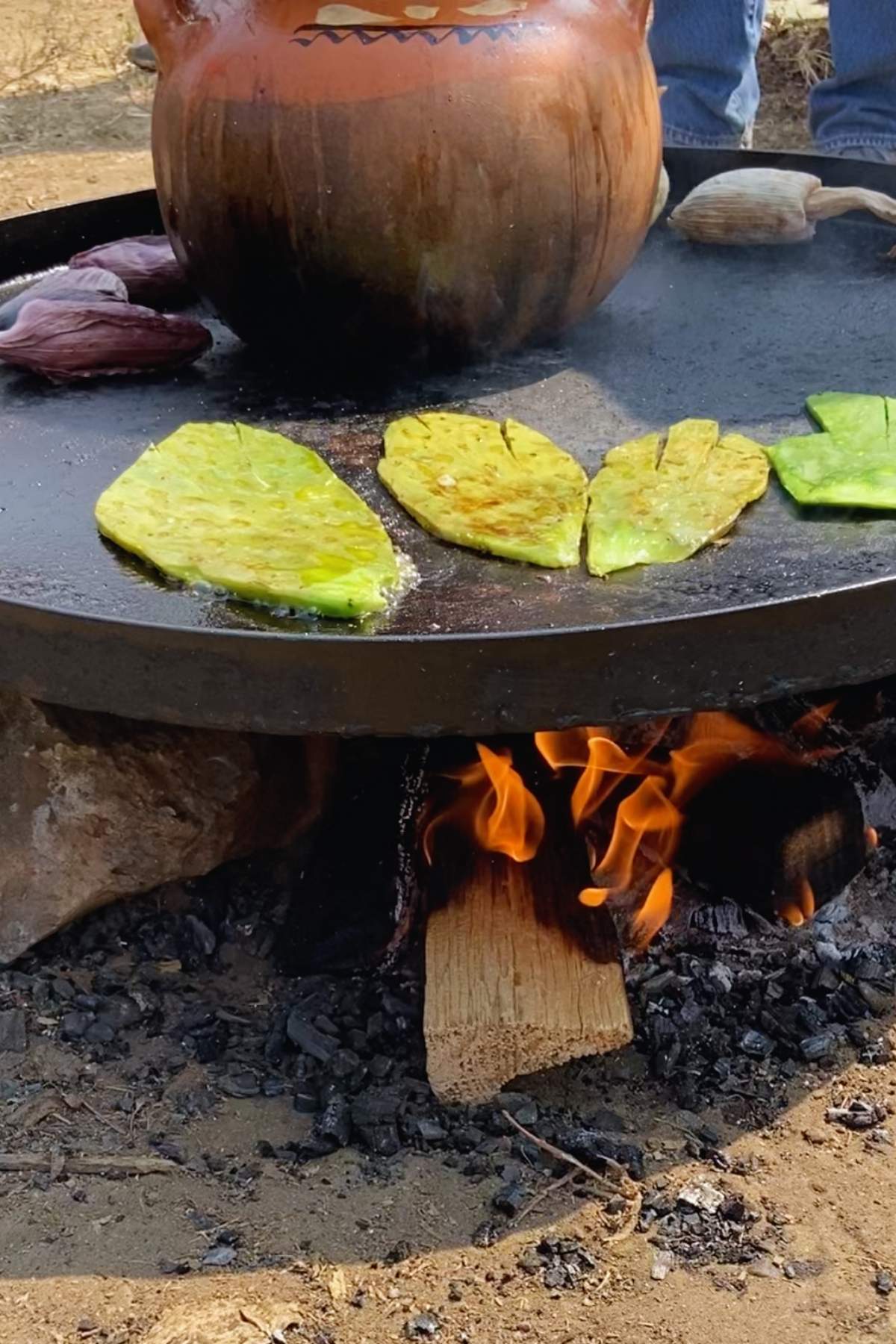
These nopales were cooked simply over the fire on the comal (shown above) with oil. Once slightly charred on both sides, we sliced the nopales into wide strips and they were ready to eat.
The nopales were the star ingredient in our breakfast tacos. The tacos were made with the nopal strips, fresh cheese, and a spicy (to me) tomato salsa on fresh corn tortillas.
Making fresh corn tortillas
We also learned how to make fresh corn tortillas, tamales and sopes from the heirloom corn grown, dried, nixtamilized and ground on the farm.
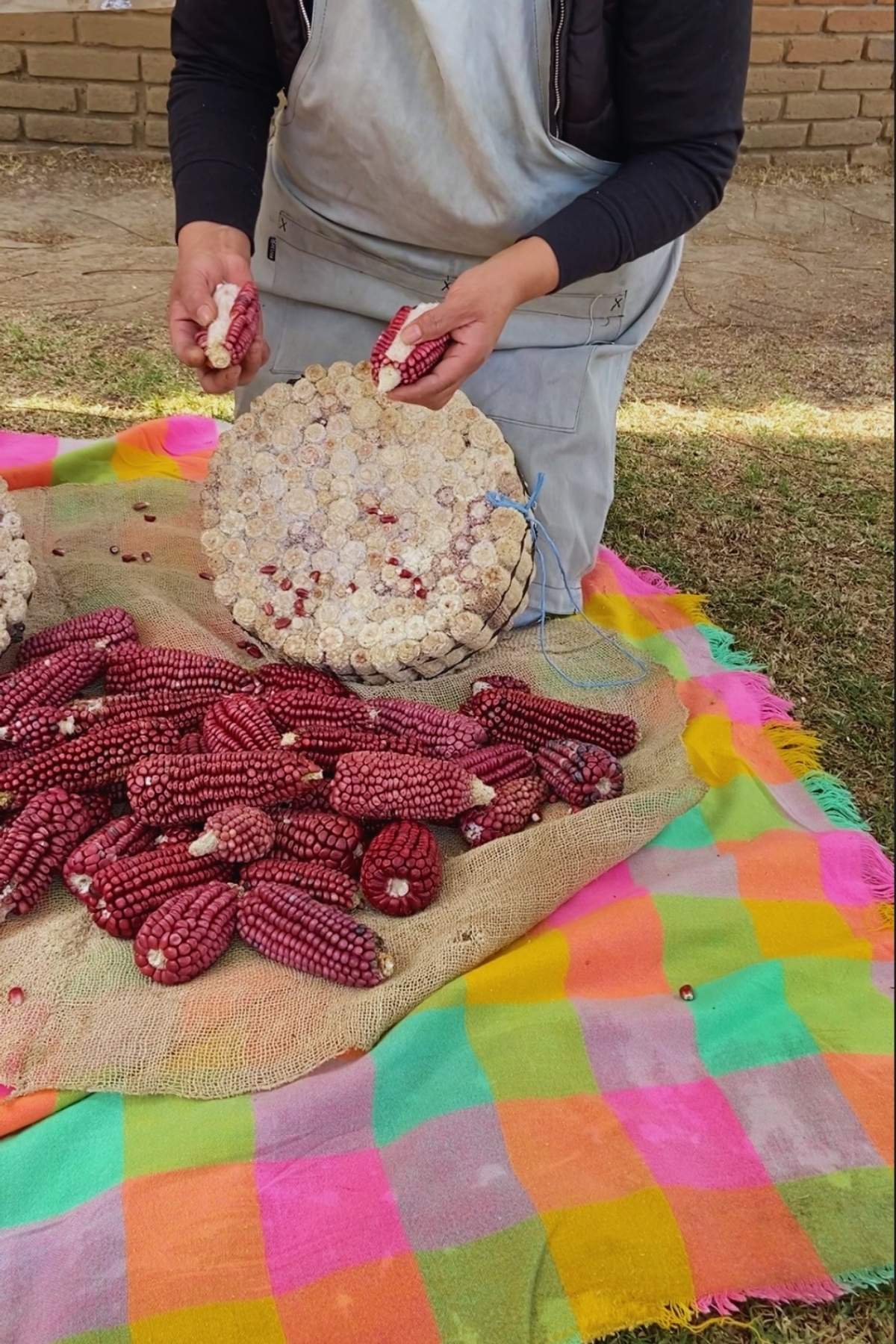
It is a process. But these were the best-tasting tortillas I’ve had in life. The colors were all natural from the different heirloom corn she plants and harvests on the farm.
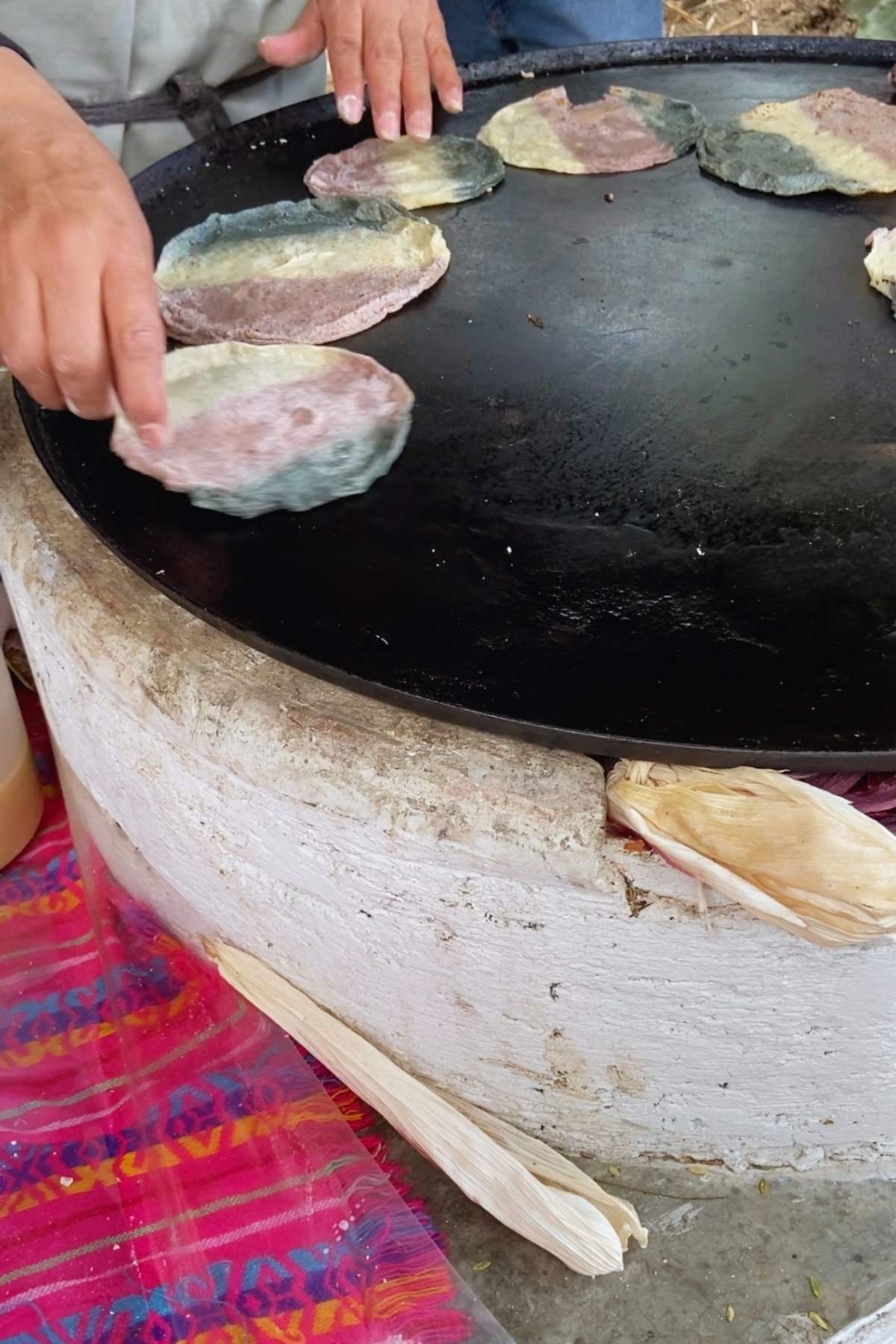
We also made corn and black bean tamales and they were the best ones I’ve ever had. The tamales were steamed in corn husks. Then we wrapped them putting a finger sized hole in the center which was later used for spooning in mole. It was a warm, slightly sweet and savory meal that I’d go back to the farm to experience.
In addition to these experiences, we also visited a local mole maker. Milpa Alta is well-known for it’s abundant homemade moles. The family business we visited is one of several in the town creating moles that many families and restaurants use throughout the city and country. I brought some back that I can’t wait to enjoy at home.
The day closed with a lovely lunch outside. We had more fresh nopal sope starter, chicken mole with Mexican rice, and a semi-sweet corn pudding made with pinole (roasted corn powder) and topped with toasted pumpkin seeds. It was a pleasant end to the day all set to the tunes of Sade.
More about the tour
I’ve been on a lot of farm and food tours. Ruta de la Milpa one was a great blend of hands on experiences, and history plus simple, delicious food.
This is an all-day tour I’d say. You will be back to the city center by early dinner time (US) but you won’t have a huge appetite – believe me.
The tour hosts are incredibly knowledgeable and kind. I paid for this experience myself. They don’t know I’m writing this.
If you like food, culture and history, you’ll enjoy this experience. Go. Be prepared to get your hands a little messy with masa. Soak up the experience.

